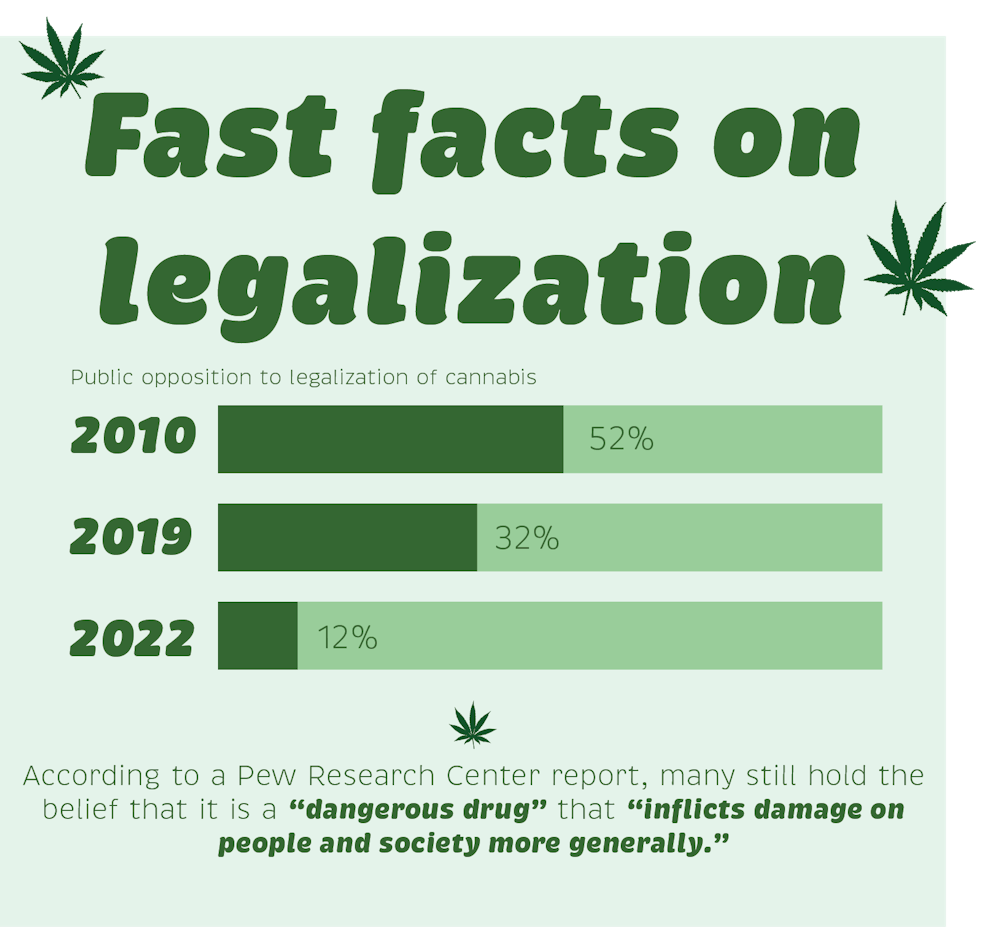Editor’s note: The Spectrum spoke on-the-record to several students who requested to remain anonymous. All students were granted anonymity due to federal and campus marijuana policies.
In 2012, Colorado and Washington became the first states to legalize recreational marjuana use. Since then, 19 other states have followed suit. Despite this, there’s still negative attitudes toward the drug.
Cannabis is classified by the Drug Enforcement Administration (DEA) as a schedule 1 drug, a category for drugs with “no accepted medical use and a high potential for abuse.”
While many states, including New York, have legalized marijuana for medical and recreational use, stigma against marijuana users remains.
The Spectrum interviewed UB students about their thoughts on marijuana usage and the societal stigma that surrounds it.
A recent psychology graduate thinks there are less harmful effects from consuming marijuana than from alcohol. She hopes it can become more normalized in society.
“I feel like if people accept alcohol the way they do, they should accept weed because now it’s legal,” she said. “I would hope that it changes to be the same, if not more accepted, than alcohol because it is kind of better for you. People use it as medicine and stuff — so just not looking down on people for it.”
Opposition to the legalization of marijuana has fallen drastically in recent years. According to a Pew Research poll, 52% of American adults opposed marijuana legalization in 2010. That fell to just 10% in a 2022 poll. Many still hold the belief that it is a “dangerous drug” that “inflicts damage on people and society more generally.”
Another student, a senior accounting major, says it “blows her mind” that people are still going to jail over infractions relating to marijuana.
“Never in my life have I seen weed ruin someone’s life,” she said. “[States] are making it legal right now while many are serving years upon years for the possession or dealing of weed.”
Recreational marijuana is legal in 21 states with 38 states legalizing medicinal use, according to the National Conference of State Legislatures.
The criminal justice system has not kept up with the societal shift.
According to an American Civil Liberties Union (ACLU) report, Black people are 3.6 times more likely than their white counterparts to be arrested for using marijuana nationwide, despite similar usage rates.
“You see time and time again, especially with people of color in this country, that they use weed as another thing to hold against us,” she said. “It is not fair. Don’t take away people’s livelihood and freedom over this.”
A junior media studies major wishes for older generations to become more accepting of marijuana use. She said people use it as a sleep aid or to simply relax after a long day — adding that people should “just mind [their] own business.”
“I hope the older generations become more accepting of weed,” she said. “I know a lot of people's parents don't even know that their child smokes weed because they know they [their parents] don't like it and think that people who smoke are low lives. I’m hoping the stigma changes altogether.”
According to Pew, 64% of people born between 1928 and 1945 are still opposed to the legalization of marijuana, with 35% in favor.
A junior communication major says he faces backlash from his grandma for smoking marijuana, as she believes users are “lazy.” But he said it’s hard to square those stereotypes with his 4.0 GPA.
“As a student, you gotta make sure your responsibilities are always first,” he said. “You can’t let the weed smoke you, you gotta smoke the weed. As long as you follow that very principle, you’ll be alright.”
Kiana Hodge is a news editor and can be reached at kiana.hodge@ubspectrum.com
Katie Skoog is a features editor and can be reached at katie.skoog@ubspectrum.com





